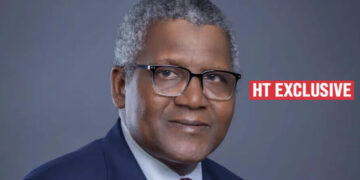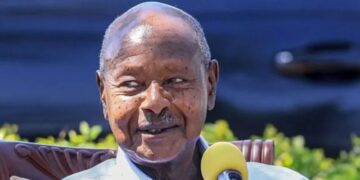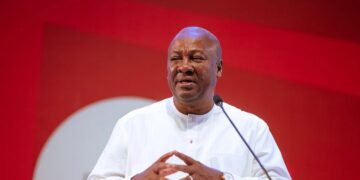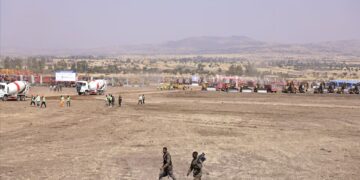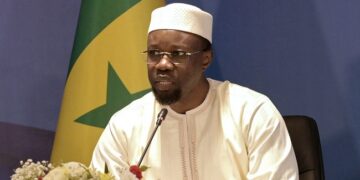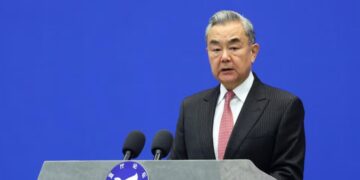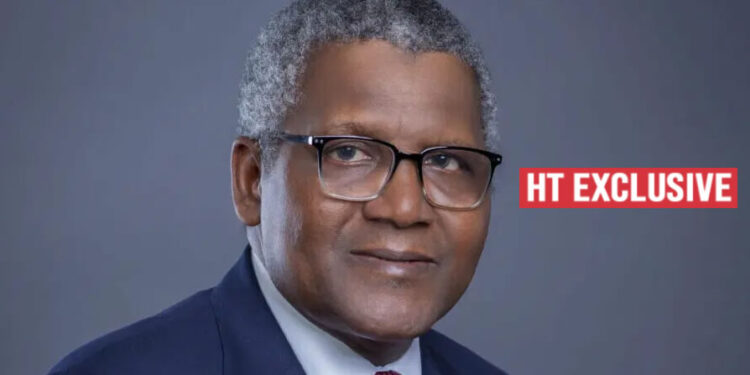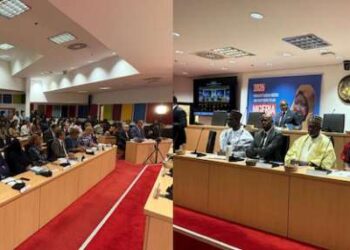By John Ikani
The applause inside the Eko Convention Centre, located in Nigeria’s commercial capital, Lagos, had barely worn off when Dangote shocked his audience with an ambitious headline figure: “We will cross thirty billion dollars in revenue by 2026.”
The billionaire’s forecast, recently delivered to a room of venture capitalists, sounded almost reckless against the backdrop of Washington’s tariff offensive. Yet Dangote insisted the numbers add up and, unusually, he has the politics of trade on his side.
Since President Donald Trump revived Section 232 duties in April, anything from foreign steel to Algerian fertiliser has faced a price wall at U.S. ports. Oil and gas were spared, leaving Dangote’s brand-new 650,000-barrel-a-day Lagos refinery free to court American buyers suddenly hunting for non-tariffed crude blends.
At the same time, the trade tension between the U.S. and other economic giants positions other African countries as alternative manufacturing and sourcing hubs for multinational companies seeking to tap into the continent’s abundant mineral resources.
As a continent rich in agriculture and high-value mineral deposits including copper, cobalt, lithium, and uranium, Africa is solidly positioned to provide a safe haven for investors who have lost access to the U.S. due to its stifling economic policies, and to increase its export of soybeans, beef, wine, and other agricultural produce.
Africa’s most populous nation is not letting go of any opportunity to assert its influence in the continent’s economic landscape. At a time when Washington is imposing a 30 percent levy on Algeria’s urea fertiliser, further widening the gap with Nigeria, whose shipment is taxed at just 14 percent, the African giant is looking to expand its reach. “Thirty-seven per cent of our urea already heads to the United States,” Dangote announced further. “That price spread is now our edge.”
The advantage is tangible. Traders say an Algerian cargo arriving in Houston costs roughly US $70 a tonne more than Nigerian product of similar grade, enough to swing major contracts to Nigeria’s Dangote Fertiliser and lift group turnover by the extra US $5 billion embedded in his 2026 target.
Tariffs are also reshaping the regional cement chessboard. U.S. duties on Egyptian clinker, part of a broader sweep against carbon-intensive goods, have pinched margins at Egypt’s two biggest exporters, Lafarge Egypt and El Sewedy.
Dangote, whose African cement plants run at 53 million tonnes capacity, is lifting output to 62 million tonnes next year, positioning Nigeria rather than Egypt as the continent’s default supplier for tariff-sensitive markets in the Gulf and, potentially, the U.S. reconstruction boom.
These developments align with a warning sounded days earlier in Marrakech, Morocco, where WTO Chief Okonjo-Iweala told African leaders at the 3rd AfriHeritage Awards that Africa faces “an increasingly challenging trade landscape” as the United States raises its walls and donor aid plateaus. Yet, she insisted, the same crisis can unlock growth if the continent “enormously explores its abundant green energy potential to power industrial activities” and “mobilises our resources” instead of exporting them raw.
Dangote’s oil-to-fertiliser-to-cement strategy—integrate locally, sell globally—fits that prescription almost verbatim. By refining Nigerian crude, he saves the freight and carbon costs baked into imported petrol. By piping north-west natural gas into his urea trains, he converts a stranded resource into dollar-earning fertiliser.
Also, by firing cement kilns with liquefied natural gas rather than coal, he keeps emissions, and the new U.S. carbon surcharge, below rivals’ thresholds. Little wonder his conglomerate’s asset base has climbed to US $27.5 billion, according to the Bloomberg Billionaires Index.
With these humongous exploits, Nigeria itself is not insulated. A Strategy& report released last month warns that any Trump move to whittle down the African Growth and Opportunity Act could shave one and a half percentage points off Nigerian GDP by curbing duty-free access for textiles, cocoa, and semi-finished metals. The study urges Abuja to follow Dangote’s lead and “fast-track value addition capacity before preferences erode.”
Whether policymakers move fast enough is another question. Okonjo-Iweala puts it bluntly: “The time to act is now. In every crisis there is an opportunity.” Dangote, fresh from securing discounted U.S. market share at his competitors’ expense, is already acting, and betting thirty billion dollars that Africa’s window has finally opened.
